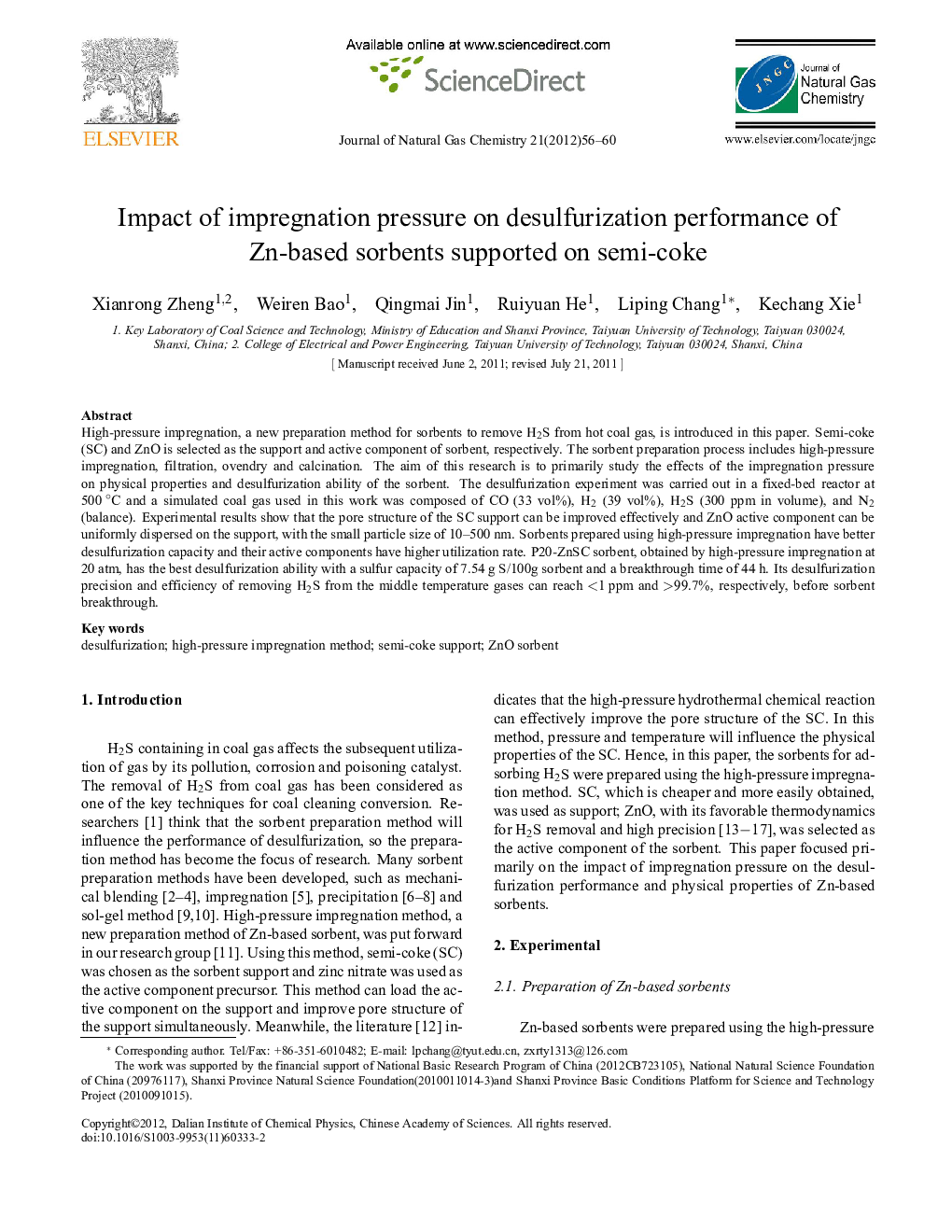| Article ID | Journal | Published Year | Pages | File Type |
|---|---|---|---|---|
| 71401 | Journal of Natural Gas Chemistry | 2012 | 5 Pages |
High-pressure impregnation, a new preparation method for sorbents to remove H2S from hot coal gas, is introduced in this paper. Semi-coke (SC) and ZnO is selected as the support and active component of sorbent, respectively. The sorbent preparation process includes high-pressure impregnation, filtration, ovendry and calcination. The aim of this research is to primarily study the effects of the impregnation pressure on physical properties and desulfurization ability of the sorbent. The desulfurization experiment was carried out in a fixed-bed reactor at 500°C and a simulated coal gas used in this work was composed of CO (33 vol%), H2 (39 vol%), H2S (300 ppm in volume), and N2(balance). Experimental results show that the pore structure of the SC support can be improved effectively and ZnO active component can be uniformly dispersed on the support, with the small particle size of 10-500 nm. Sorbents prepared using high-pressure impregnation have better desulfurization capacity and their active components have higher utilization rate. P20-ZnSC sorbent, obtained by high-pressure impregnation at 20 atm, has the best desulfurization ability with a sulfur capacity of 7.54 g S/100g sorbent and a breakthrough time of 44 h. Its desulfurization precision and efficiency of removing H2S from the middle temperature gases can reach <1 ppm and > 99.7%, respectively, before sorbent breakthrough.
